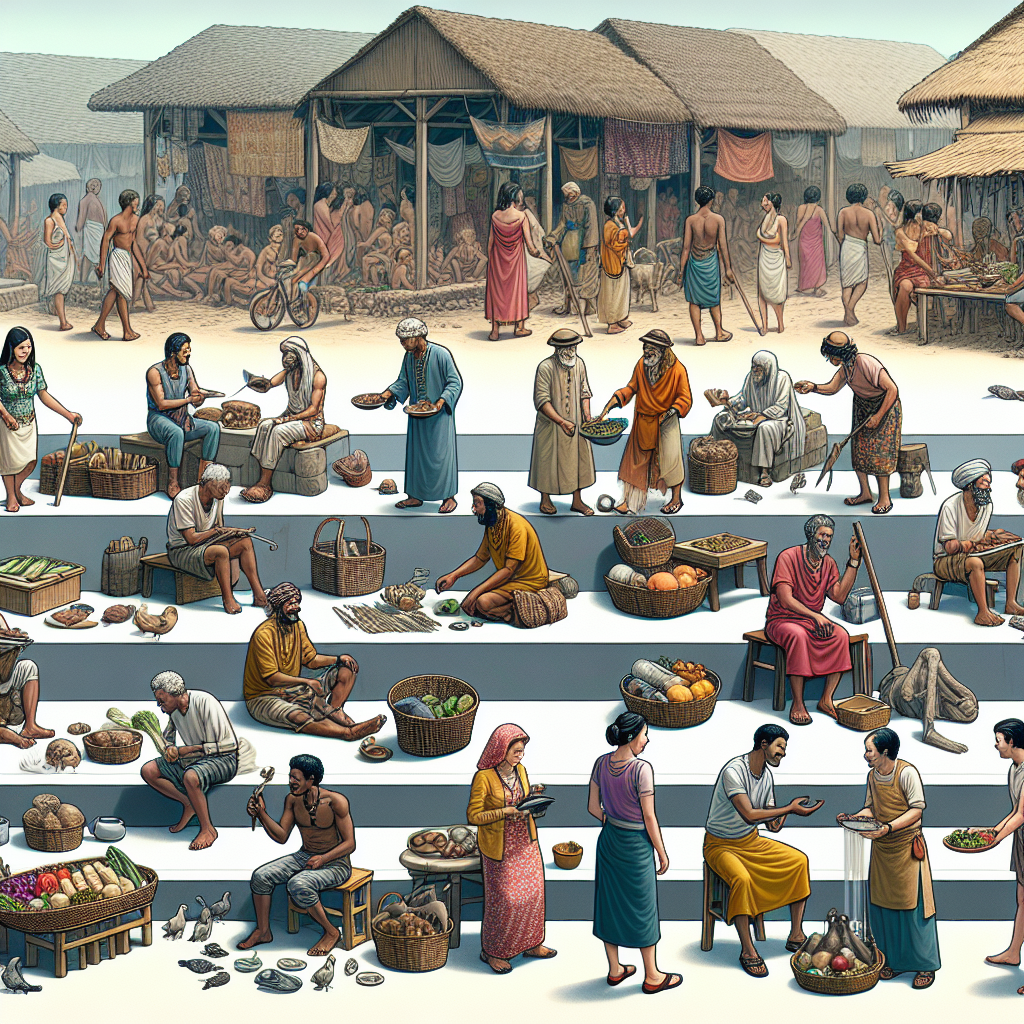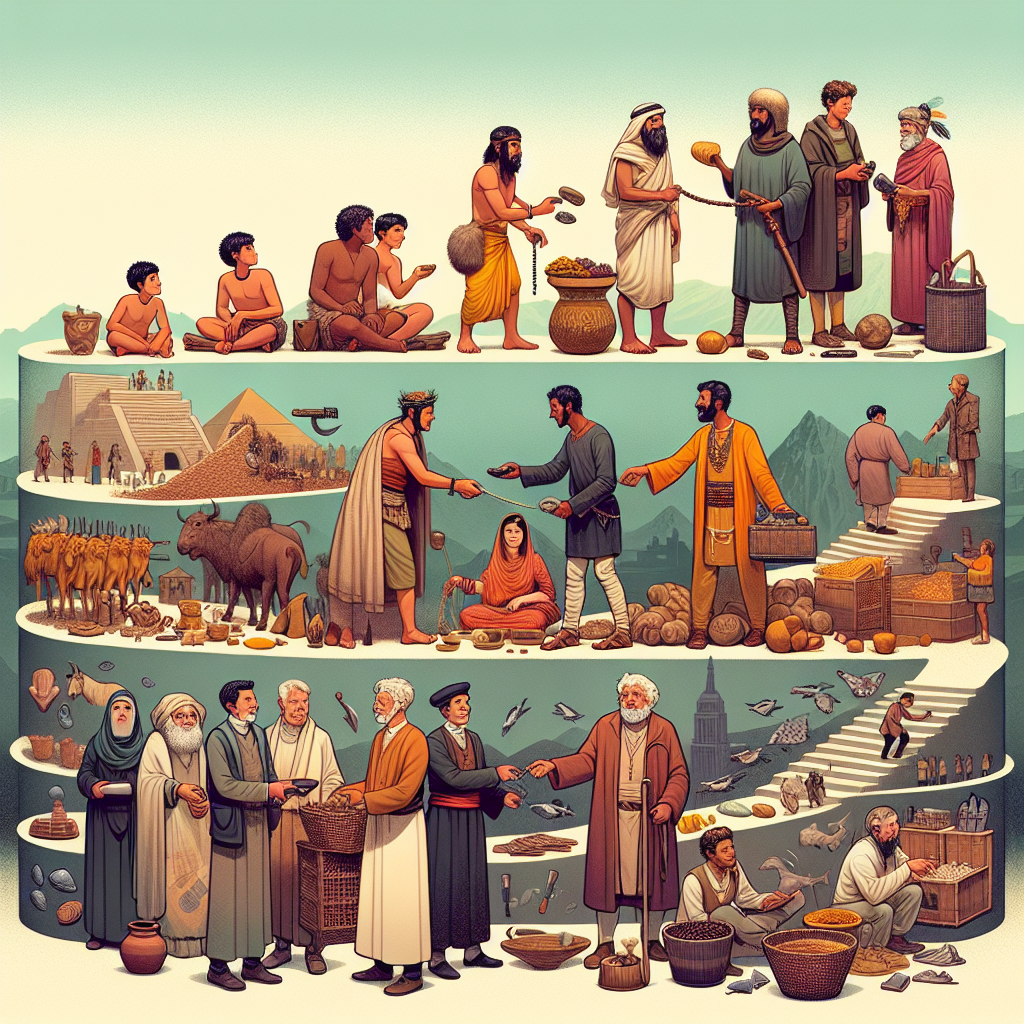
The Evolution of Bartering: From Ancient Exchanges to Modern Trade Systems
Long before the invention of money, humans relied on a simple yet effective system of trade—bartering. This age-old practice allowed people to exchange goods and services directly, forming the foundation of commerce as we know it today. While we now live in a world dominated by digital transactions and global banking, bartering still exists in various forms, proving its timeless relevance.
Ancient Bartering: The Birth of Trade
The origins of bartering can be traced back to early human civilizations. Before currency was established, societies engaged in direct exchanges—one person might trade a bundle of wheat for a hunting tool, or livestock might be exchanged for textiles. These transactions required mutual agreement on the relative value of items, making trade both essential and strategic.
Different societies developed their own unique barter markets. The Mesopotamians, for instance, traded goods like grain, pottery, and spices with neighboring communities. Meanwhile, indigenous tribes across Africa, Asia, and the Americas practiced localized bartering to sustain their economies.
The Shift to Currency
Despite its usefulness, bartering had limitations. It often relied on a double coincidence of wants—both parties needed to desire what the other had to offer. This inefficiency led to the introduction of money, with early forms including metal coins and standardized weights. Money made transactions more flexible, allowing individuals to trade goods indirectly rather than requiring a direct exchange.
The emergence of monetary systems did not eliminate bartering entirely. It continued to thrive in rural areas, during periods of economic crisis, and among groups who preferred direct trade over traditional commerce.
Modern Bartering in the Digital Age
Today, bartering has adapted to contemporary society. Online barter platforms enable businesses and individuals to exchange goods and services without involving cash. Some companies use barter networks to trade advertising space, services, and products, creating alternative strategies to conserve financial resources.
Additionally, community-driven barter markets—such as swap meets and local trading groups—have gained popularity, allowing people to exchange excess items or skills without monetary interaction. In times of financial uncertainty or inflation, bartering offers an alternative means of acquiring necessities.
Conclusion
From ancient civilizations to modern economies, bartering remains an essential part of human interaction. While money may have taken center stage, the fundamental concept of exchange continues to evolve, proving that trade isn’t just about currency—it's about cooperation and resourcefulness.
-
 03/10/2025 141
03/10/2025 141 -
 03/10/2025 175
03/10/2025 175 -
09/23/2024 283
-
 02/11/2021 1395
02/11/2021 1395 -
 10/09/2020 1122
10/09/2020 1122 -
 10/06/2020 1119
10/06/2020 1119 -
 04/20/2020 1231
04/20/2020 1231 -
 06/24/2018 1538
06/24/2018 1538
-
 08/30/2017 2412
08/30/2017 2412 -
 10/11/2017 2148
10/11/2017 2148 -
 03/11/2018 2132
03/11/2018 2132 -
 08/28/2017 2090
08/28/2017 2090 -
 05/24/2017 2061
05/24/2017 2061 -
 05/24/2017 2011
05/24/2017 2011 -
 06/12/2017 1952
06/12/2017 1952 -
 05/07/2018 1919
05/07/2018 1919
FEATURED NEWS

LEGAL

LEGAL


LEAVE A COMMENT